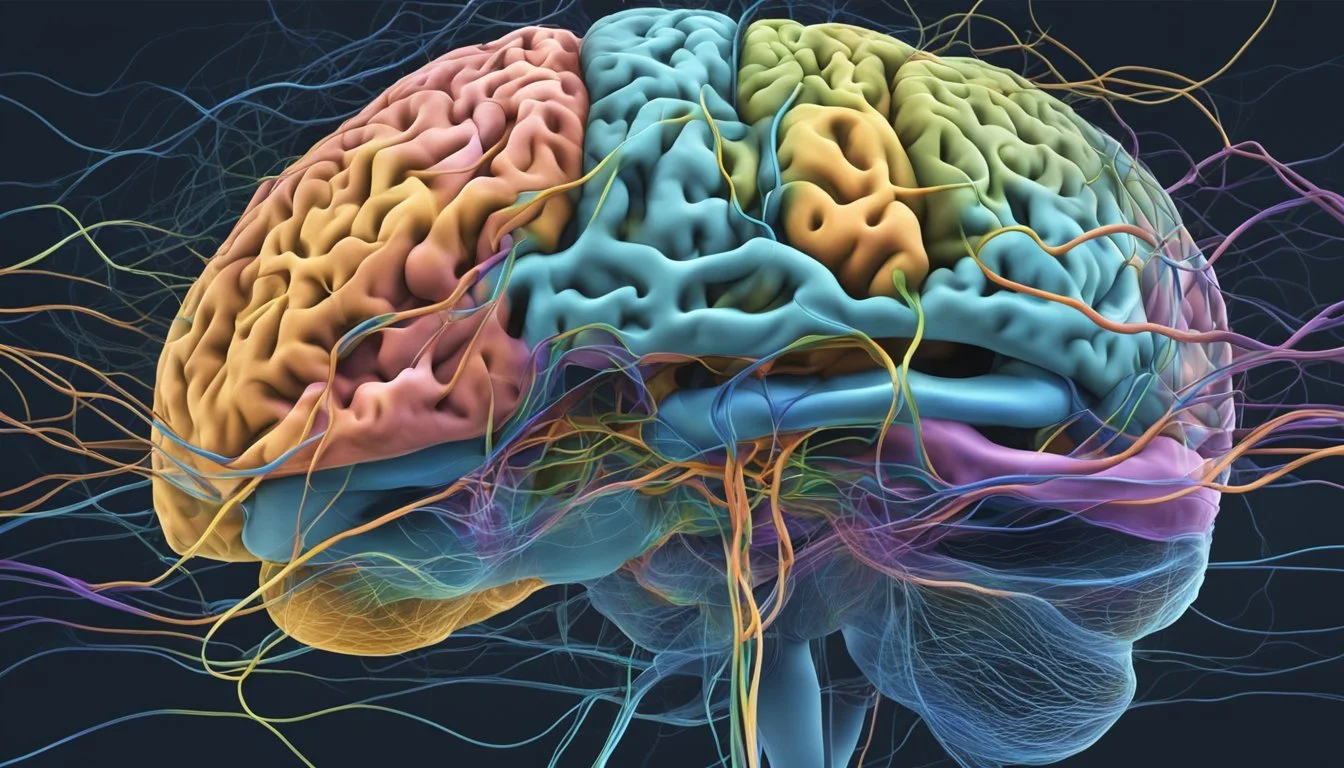Trauma & PTSD
Trauma is an emotional response to a devastating event, such as an accident, sexual assault, or natural disaster. Immediately following the incident, shock and denial are common reactions. Over time, individuals may experience unpredictable emotions, flashbacks, strained relationships, and even physical symptoms like headaches or nausea.
While these feelings are part of the healing process, some individuals may struggle to move forward in life. Psychologists can provide valuable support and guidance to help them effectively manage their emotions.
Trauma can be defined as an overwhelming experience that disrupts an individual's sense of safety and security. It can be caused by a single event or prolonged exposure to stress and danger, and can have serious long-term effects on an individual's mental and physical health. Trauma is a complex concept and understanding the different types of trauma, its symptoms, and how it affects individuals is important for mental health professionals, individuals who have experienced trauma, and their loved ones. In this section, we will provide a comprehensive overview of trauma in psychology.
Types of Trauma
There are different types of trauma; some are caused by a single event while others are prolonged exposure to stress and danger. Acute trauma is a single event or incidents that cause distressful feelings such as accidents, natural disasters and sexual and physical assaults.
Chronic trauma, on the other hand, refers to long-term exposure to stress and danger, such as living in a warzone or experiencing long-term abuse. Complex trauma refers to experiencing multiple traumas, which are usually long-term events and frequently occur during childhood.
Trauma Symptoms
Trauma symptoms can manifest both physically and psychologically. Physiologically, a person may experience fluctuating emotions, anxiety, depression and the inability to relax. The major psychological symptoms of trauma include avoidance, intrusive thoughts, hypervigilance and dissociation.
These symptoms can become overwhelming and interfere with an individual's day-to-day life, in some cases leading to the development of other mental health conditions such as post-traumatic stress disorder (PTSD).
Trauma Treatment
There are various treatment options available for those who have experienced trauma, and the type of treatment recommended depends on the severity and type of trauma. Trauma-focused Cognitive Behavioral Therapy (CBT) is a talking therapy that is used to help manage and alleviate the long-term effects of trauma.
Other therapies such as Eye Movement Desensitization and Reprocessing (EMDR) or trauma-focused medication are also effective therapies. Trauma treatment may also include self-help groups or support groups, which can provide a safe and supportive environment for individuals to speak about their experiences and connect with others who may have shared similar experiences.
Trauma Prevention
Prevention is better than cure, and trauma prevention can start at an individual level by proactively engaging in activities that promote personal well-being such as self-care, mindfulness, and stress-reducing exercises.
It is essential to recognize the signs of trauma and seek help early on before it manifests into long-term mental health problems. Education can provide information on how to maintain a safe and healthy environment and assist individuals who have experienced trauma.
Conclusion
Trauma can have long-lasting effects on an individual's emotional and physical well-being. The impact of trauma can be reduced through early intervention, support groups, and therapy. Understanding the different types of trauma, its symptoms, treatments, and prevention methods can provide a comprehensive perspective on how to manage and cope with trauma.
It is important for individuals who have experienced trauma to know they are not alone, and that help and resources are available. As mental health professionals, family members, and communities, we all play a role in supporting individuals who have experienced trauma and facilitating their path to healing and well-being.
Distinguishing Complex PTSD from Borderline Personality Disorder
Explore the relationship between complex PTSD and borderline personality disorder. Learn about the similarities, differences, and potential overlap in symptoms, diagnosis, and treatment approaches for these two often-confused mental health conditions.
Effective Strategies for Managing PTSD Symptoms
Discover effective ways to cope with PTSD and regain control of your life. Learn practical strategies, self-help techniques, and professional treatment options to manage symptoms, reduce anxiety, and improve overall well-being while living with post-traumatic stress disorder.
Clonidine as a Treatment Option for PTSD Symptoms
Explore the use of clonidine for PTSD symptom management. Learn about the potential benefits, side effects, and effectiveness of this alpha-2 adrenergic agonist in treating post-traumatic stress disorder, particularly for symptoms like hyperarousal and nightmares.
Understanding PTSD Diagnostic Codes in Healthcare
Explore the importance of code PTSD in medical and mental health settings. Learn about the diagnostic codes used for post-traumatic stress disorder, their significance in treatment planning, insurance claims, and research, and how they impact patient care and record-keeping.
Therapeutic Approaches for Complex PTSD Recovery
Explore effective complex PTSD treatments designed to address the unique challenges of chronic trauma. Discover evidence-based therapies, medication options, and holistic approaches that help individuals manage symptoms and recover from complex post-traumatic stress disorder.
Cognitive Behavioral Therapy for PTSD Treatment
Discover the benefits of CBT in PTSD treatment and recovery. Learn how Cognitive Behavioral Therapy helps individuals with post-traumatic stress disorder manage symptoms, reframe thoughts, and develop coping strategies for improved mental health and well-being.
Assessing PTSD Symptoms with Diagnostic Tools
Explore the essential checklist PTSD tools used for screening and assessing post-traumatic stress disorder. Learn about key symptoms, diagnostic criteria, and how mental health professionals use these checklists to evaluate and monitor PTSD in patients.
Neuroimaging Uncovers Complex PTSD Brain Changes
Explore how complex PTSD brain scans reveal neurological impacts of trauma. Discover the latest neuroimaging findings on brain structure and function in complex post-traumatic stress disorder, and learn about potential implications for diagnosis and treatment.
Understanding Trauma in Caregiving Experiences
Explore caregiver PTSD and its impact on those providing long-term care. Learn about the signs, causes, and consequences of post-traumatic stress disorder in caregivers, and discover effective coping strategies and support resources for maintaining mental health while caring for others.
Understanding Trauma and Stress in Felines
Explore cat PTSD and learn how trauma can affect our feline companions. Discover the signs of post-traumatic stress in cats, potential causes, and effective strategies for helping your pet overcome anxiety and fear-related behaviors.
Understanding Concurrent Disorders with PTSD
Discover the complexities of comorbid PTSD and its impact on mental health treatment. Learn about common co-occurring disorders, challenges in diagnosis, and integrated treatment approaches for individuals experiencing post-traumatic stress disorder alongside other mental health conditions.
Clinician Administered PTSD Scale for DSM5
Explore CAPS-5 PTSD, the gold standard assessment tool for post-traumatic stress disorder. Learn about the Clinician-Administered PTSD Scale for DSM-5, its structure, scoring methods, and importance in diagnosing and evaluating PTSD severity according to the latest diagnostic criteria.
Dreams as Potential Triggers for PTSD
Investigate whether you can get PTSD from dreams and understand the relationship between nightmares and trauma. Learn about the role of disturbing dreams in post-traumatic stress disorder, their effects on sleep quality, and strategies for managing dream-related anxiety.
Recognizing PTSD Symptoms from Childhood Trauma
Explore childhood trauma PTSD symptoms and their long-lasting effects on mental health. Learn to recognize the signs of post-traumatic stress disorder stemming from early life experiences, and discover coping strategies and treatment options for healing.
PTSD and Its Potential Role in Schizophrenia Development
Investigate whether PTSD can cause schizophrenia and understand the complex relationship between trauma and psychotic disorders. Learn about shared risk factors, overlapping symptoms, and the latest research on the potential links between post-traumatic stress disorder and schizophrenia.
Feline Trauma Humor in Internet Culture
Discover the world of cat PTSD memes and how they humorously depict feline stress. Explore popular examples, the cultural significance of these memes, and how they reflect our understanding of animal behavior and mental health.
PTSD and Its Potential Link to Seizure Activity
Explore the question: can PTSD cause seizures? Discover the potential connections between post-traumatic stress disorder and seizure disorders, including shared risk factors, neurological impacts, and treatment considerations for individuals experiencing both conditions
PTSD and Its Impact on Blood Pressure Levels
Investigate whether PTSD can cause high blood pressure and understand the link between trauma and cardiovascular health. Learn about the physiological effects of post-traumatic stress disorder on blood pressure, risk factors, and management strategies for both conditions.
Clinician Administered PTSD Scale Assessment
Explore CAPS PTSD, the gold standard for assessing post-traumatic stress disorder. Learn about the Clinician-Administered PTSD Scale, its components, scoring methods, and importance in diagnosing and evaluating PTSD severity.
PTSD and Its Effects on Memory Function
Explore whether PTSD can cause memory problems and how trauma affects cognitive function. Learn about the types of memory issues associated with post-traumatic stress disorder, potential mechanisms, and strategies for managing and improving memory in PTSD patients.




















